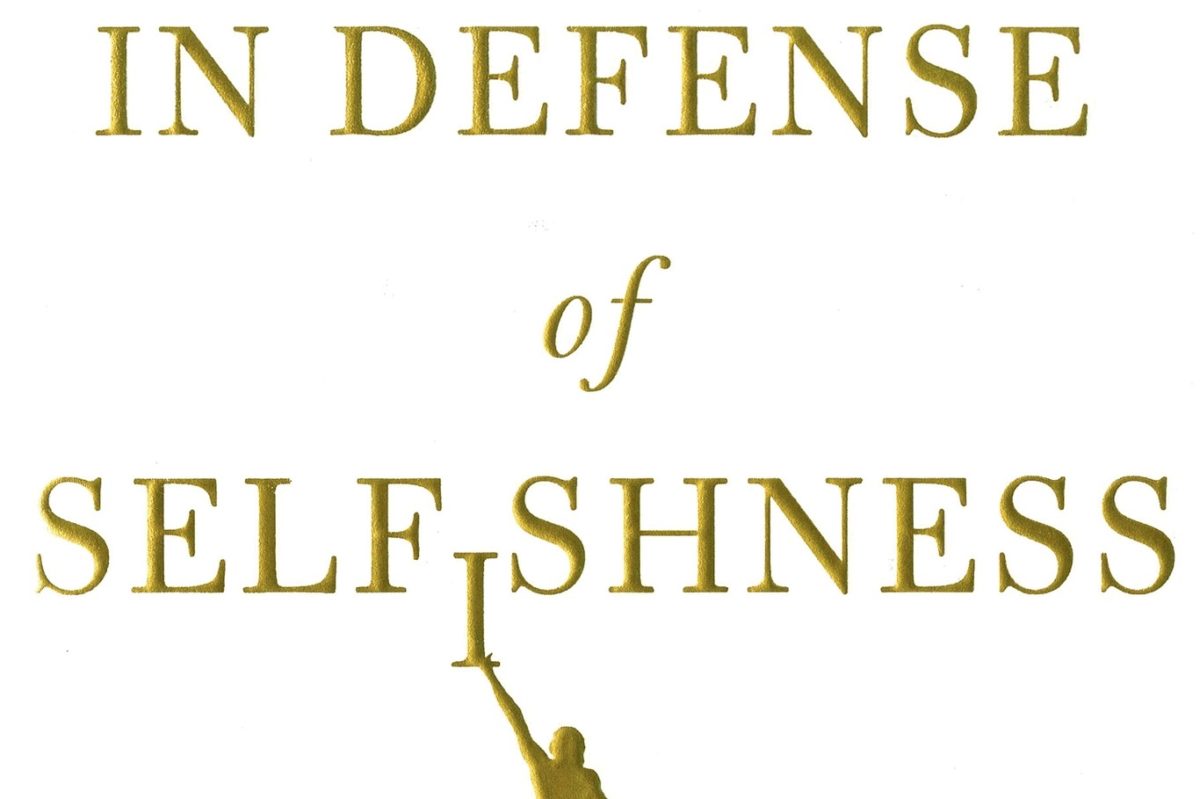Last May, perhaps the most highly-anticipated new film of the new millennium opened to rave reviews and record-smashing box office receipts, eclipsing another, more modest film that had opened just a few days earlier.
Both films were more than just entertaining summer spectacles, or “popcorn flicks,” though they were certainly that. They have something else in common: a profoundly philosophical theme, portraying their respective creators’ most deeply-held views about the nature of the world we live in and the meaning and value of human life. For each, the theme is an examination of the struggle between good and evil within one man’s soul. And in both, the protagonist’s ultimate choice comes as a result of his loyalty to his highest values–his friends, his family, and his self-esteem.
Here, however, at this most abstract level, all similarities between the two films cease; for in one of them this loyalty to attaining and defending values leads the protagonist to choose evil and become a monster, while in the other it leads to the hero’s renunciation of everything monstrous in his past, to his redemption.
By now, you have probably guessed that the first film is George Lucas’ final installment in the Star Wars saga. But you may not be aware of the second: writer/producer Luc Besson’s martial arts action flick Unleashed, starring Jet Li.
Star Wars Episode III: Revenge of the Sith explores the question of what could cause the descent of the once heroic Anakin Skywalker to the evil Dark Side. Yoda answers this question when he advises young Anakin to let go of his personal attachments and consign himself to the will of the Jedi Council, whose duty and sole purpose for existence is the protection of the Republic. Because it would interfere with this duty, one of the rules of the Council is that a Jedi may not have a spouse; Anakin, however, has secretly married Amidala in Episode II. The remainder of the film illustrates Yoda’s advice as Anakin’s love for Amidala causes him to put his personal desires above the good of others, leading him eventually to massacre innocent children because he is apparently stupid enough to believe that this will help him protect his wife’s life.
The film perfectly concretizes its creator’s philosophy. Lucas is a self-described “Methodist Buddhist.” From Methodism, he takes the Christian view that altruism is the moral ideal, that our lives only have meaning and value if we sacrifice ourselves for the sake of somebody, anybody, else. Thus, Anakin must sacrifice his love for Amidala and serve the Republic as a Jedi. From Buddhism, he takes (among other things) the idea that Life Is Pain, that only by renouncing all of our values and embracing a life of asceticism can we avoid suffering and achieve a lasting peace (in Zen, even the Self is demolished). Hence, the ascetic lifestyle the Jedi impose on themselves. This actually makes a certain kind of sense: it is easier to sacrifice one’s values for others’ alleged benefit if one has already renounced his capacity to value.
But there are inconsistencies in both viewpoints. There is a double-standard inherent in the altruist position that another’s benefit is more worthy than one’s own. If valuing isn’t good for you, then it must follow that whatever value your sacrifice bestows upon others would actually be bad for them as well. And the Buddhist avoidance of suffering is itself motivated by the fear that it seeks to prevent. But the annihilation of the Self will not solve the internal inconsistencies of altruism.
Lucas is able to ignore these problems, however, because his ideology allows it. From both Christianity and Buddhism he takes the belief that logical reasoning based on observation is deceiving, and that one must thus rely on one’s “feelings,” which are taken as unexplainable insights. This idea has permeated the franchise ever since the original Star Wars, in which Obi-Wan trained Luke by having him don blinders and let his “feelings” guide him, and Luke ultimately prevailed by trusting his “instincts” rather than using a computer.
Of course, “following his feelings” is precisely what Anakin is doing when he turns to the Dark Side. But ultimately, even this isn’t such a bad thing since the existence of the Dark Side is necessary to bring “balance” to the force (another Buddhist idea). Still, there is a tension between Lucas’ Buddhism and his Christianity, betrayed by such blatant contradictions as Obi-Wan’s declaration that “Only a Sith deals in absolutes!” followed not ten minutes later his absolute statement that “The Sith are evil!” Is Lucas a relativist or an absolutist? Even he doesn’t seem to know. But, as we have seen, consistency is not the hobgoblin of his mind.
Which also explains why George Lucas, who jealously guards his personal values (both spiritual and material) in real life, seems like the biggest hypocrite in the galaxy.
But what could a filmmaker who was unhampered by this intellectual chaos do with a similar theme? Fortunately, that question is answered by another film that happens to be in theaters simultaneously with Star Wars.
Unleashed tells the story of Danny (Li), who has been enslaved since childhood by gangster Bart (Bob Hoskins) and trained as an attack dog. He is forced to wear a collar, and when one of Bart’s “clients” doesn’t cough up protection money, the collar comes off, signaling Danny to beat them to a bloody pulp. But when Danny escapes during an attack on Bart by one of his rivals, he is taken in by a gentle, blind piano tuner, Sam (Morgan Freeman). Sam and his stepdaughter Victoria (Kerry Condon) introduce him to a peaceful, happy life filled with pleasures like music and ice cream, not to mention friendship and love.
This is so diametrically opposed to the life of violence and death that he was accustomed to that when he is recaptured by Bart, Danny refuses at first to even defend himself, unwilling to mete out death at his “owner’s” command. His cry of “No more killing!” is a truly touching moment, which, along with his climactic decision of whether or not to kill Bart in revenge, makes this the only martial arts action film in memory to convey a “violence is not the answer” message without seeming hypocritical.
But the film’s deeper meaning is that it is a man’s own personal values, from his favorite flavor of ice cream to the love of a kindred spirit, that inspire him to struggle for a better life. Further, this struggle is the moral purpose of his life–not service to the “needs” of others, and certainly not self-sacrifice. While Star Wars sends the message that the selfish pursuit of values leads to unspeakable evil, Unleashed declares that the alternative to selfish values is slavery.
The philosophy this represents is virtually unknown in today’s society, at least in explicit, consistently defended terms. I do not know Luc Besson’s sources for his personal philosophical convictions (or even what those convictions are, beyond what one can glean from his films), but this attitude toward values most closely resembles that held by the Ancient Greeks, or by Ayn Rand. On this view, human beings are individual, metaphysically distinct entities, not part of a collective, and thus the proper beneficiaries of their own actions. This ethical egoism does not suffer from the internal inconsistencies of the Christian or Buddhist views.
Unfortunately, however, Star Wars has proven by far the more popular of the two films, grossing a third of a billion dollars in its first month (as compared to a paltry 24 million by Unleashed)–which means that the crowds flocking to see the movie aren’t bothered by its philosophic message. They take for granted the ethics that Lucas espouses. It is difficult to disagree with the portrayal of selfishness as climbing over piles of corpses when that is what you have been taught your whole life.
But if you put aside what you have been taught and look instead at the facts of reality, it becomes quite easy to disagree. Do your feelings for your loved ones cause you to become a children-slaughtering monster (or do anything bad, for that matter), or do they bring you mutual happiness and growth, to the detriment of no one and the benefit of all concerned? Clearly, Unleashed paints the more rational picture of selfish values.
Ash Ryan lives in Salt Lake City, where he recently completed work on a philosophy degree at the University of Utah. He is currently writing his first novel.




